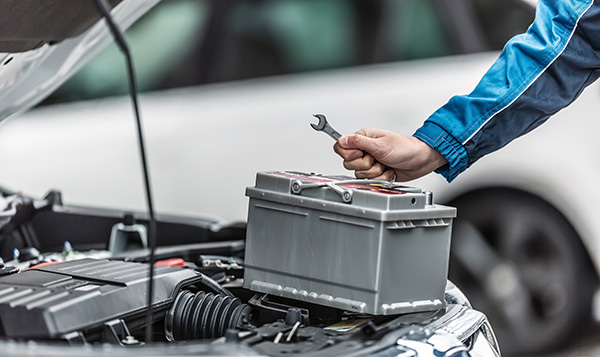
Cold mornings have a way of revealing a car’s true condition. You might turn the key or press the start button and hear a slow, tired crank, or worse, nothing at all. It’s easy to blame the battery, but there’s often more happening beneath the surface.
Cold weather drains battery strength and tests your entire charging system. If either one isn’t performing as it should, your car may struggle to start when temperatures drop. Here’s what’s really going on and what you can do to keep your vehicle reliable all winter long.
Why Batteries Struggle More in the Cold
When temperatures fall, the chemical reactions inside your battery slow down. That means it produces less power for the starter and ignition system. At the same time, cold oil thickens, and the engine takes more effort to turn over. These two factors together make winter the toughest season for starting a car.
Even a healthy battery feels the strain, but one that’s already weak or undercharged can fail completely. Batteries that have spent the summer exposed to heat or gone through repeated short trips are often the first to show trouble once the weather changes.
How Battery Age Affects Winter Performance
Most car batteries last around three to five years. After that, their internal materials begin to degrade, and they can’t hold a charge like they used to. You might not notice any issues in warm weather, but once the first cold snap hits, the reduced capacity becomes obvious.
If your battery is more than three years old, now is the time to have it tested. A quick load or voltage test can tell you exactly how much life it has left and whether it’s strong enough to handle winter starts.
Signs That Your Battery May Be Weak
A dying battery rarely fails without warning. If you notice slower cranking, flickering lights, or a dim dashboard display, those are signs that the battery is already struggling. In cold weather, those symptoms get worse.
Corroded or loose terminals can also interfere with current flow, even if the battery itself is still in good shape. During an inspection, it’s worth having a technician check the connections and clean them if necessary.
The Role of the Charging System
Your alternator and serpentine belt work together to keep the battery charged. If either part isn’t doing its job, the battery won’t recover after each start. You might make it home after a long highway drive, but find the car won’t start the next morning.
A weak alternator, slipping belt, or low charging voltage can all leave the battery underpowered. That’s why a complete charging system test is just as important as a battery check before winter.
How to Prevent a Dead Battery This Winter
You can avoid most cold-weather starting problems with a few simple steps:
- Have your battery and charging system tested before freezing weather arrives.
- Keep terminals clean and connections tight.
- Replace the battery if it shows signs of weakness or is nearing the end of its lifespan.
- Park in a garage when possible to protect the battery from extreme cold.
- Use a battery maintainer if your car sits for long periods between drives.
These small habits can make the difference between a reliable start and being stuck in the driveway on a frosty morning.
Reliable Battery Testing and Replacement in Concord, NH at Accomplished Auto
If your car is slow to start or you’re not sure how healthy your battery is, stop by Accomplished Auto in Concord, NH. Our technicians can test your battery, check the alternator, clean any corrosion, and install a new battery if needed.
We’ll make sure your car is ready for cold weather so you can start every morning with confidence. Visit us for a battery check today and stay ahead of winter’s challenges.